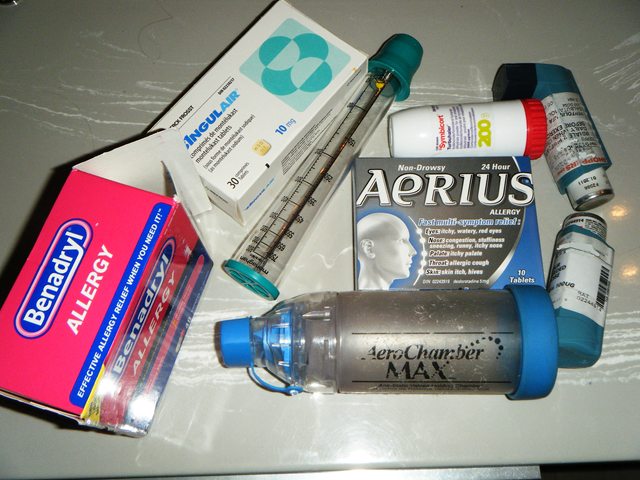 By ALAN BAVLEYThe Kansas City Star
By ALAN BAVLEYThe Kansas City Star
Ronald Patterson has been providing day care for years, but he doesn’t remember asthma ever being as big a problem among the children as it is now.
At least one in 10 kids at his George Washington Carver Child Development Center have the condition.
So when the Kansas City Health Department offered to assess asthma risks at his center, Patterson was quick to open his doors.
The new health department program is being offered free to child-care facilities and to parents of young children with asthma.
The goal is to minimize the environmental factors — secondhand smoke, mold, dust mites — that can trigger asthma attacks.
The need is great, said Rebecca Steiner, the environmental health specialist who is conducting the program.
About 3,000 children were treated for asthma at hospital emergency rooms in Kansas City last year. more than half were 5 years old or younger.
“The youngest children are the most affected,” Steiner said. “Early treatment can prevent greater problems later.”
Patterson wanted to know why asthma has been increasing among children.
“Is there any reason for that?” he asked. “We didn’t even protect ourselves back then.”
One reason, Steiner said, may be that children are spending more time indoors, where many asthma triggers are concentrated. That’s why the health department is focusing on child-care centers.
Steiner went through a checklist of preventive measures with Patterson. Furnace filters changed regularly? yes. Carpets vacuumed? Daily. Plush toys and bedding washed? At least weekly.
As babies slept, toddlers toddled and older children zoomed by with toy cars and trucks, Steiner went from room to room with a couple of meters taking readings of temperature and humidity and levels of carbon dioxide and carbon monoxide.
High temperatures and humidity create ideal conditions for dust mites. High carbon dioxide levels may indicate that not enough fresh air is getting into a building. People with respiratory conditions like asthma are more susceptible to carbon monoxide poisoning.
The George Washington Carver center passed every test.
The health department asthma program is set to run through next July. a $37,000 grant from the Missouri Department of Health and Senior Services is covering the cost with federal stimulus dollars. other health departments in the state also have gotten grants for similar programs.
Steiner hopes to do assessments of about 100 child-care centers. so far, she has found some reluctance to volunteer.
“I think a lot of facilities are worried that this will be regulatory, that we’ll force them to rip out carpet or get a new ventilation system,” Steiner said.
But that’s not the case: she just offers advice.
Steiner also is providing education to parents to help them recognize asthma symptoms in their children and eliminate asthma triggers at home. The service is available to any Kansas City families with children up to age 5 with asthma or older children with asthma who spend time in child care.
Steiner already has been invited back to the Carver center for its monthly parents’ meeting.
“I think it would be valuable especially to younger parents who assume (asthma symptoms) are just a cold,” the center’s director, Taloura Milligan, said. “It’s greater than a cold.”
Getting involved To participate in Kansas City’s asthma program, call 816-513-6362 to schedule an appointment.